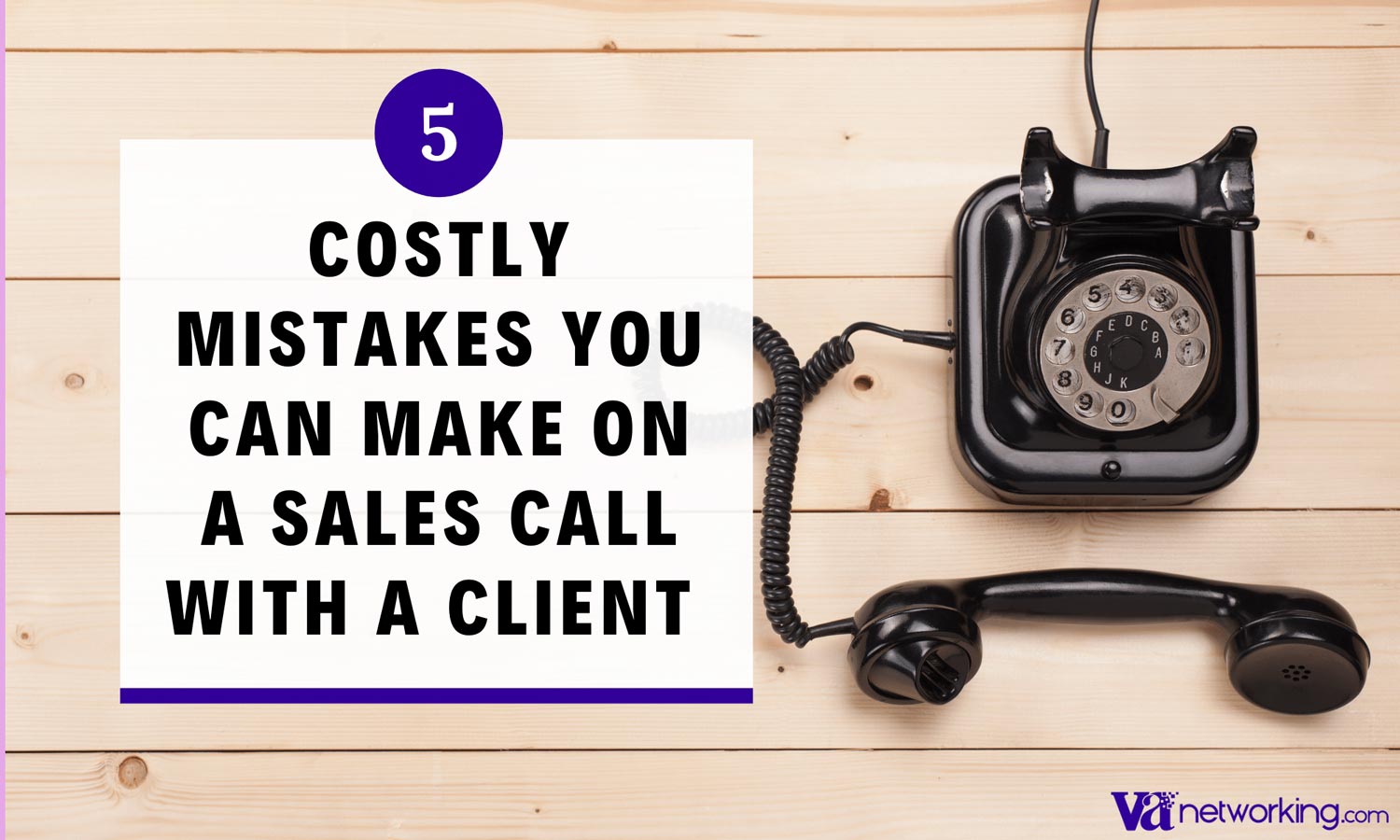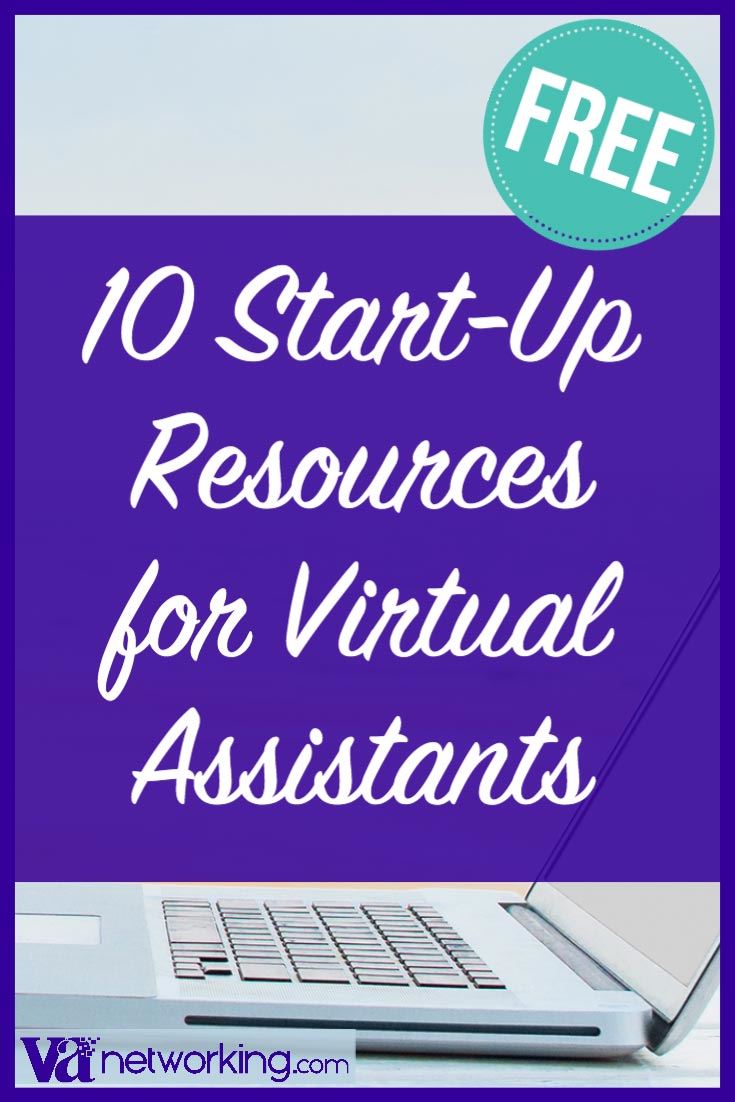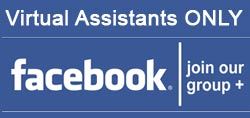Contributed by Laura Briggs, one of our fabulous speakers at our upcoming Virtual Assistant VAvirtuosos Summit
The sales call is where business is done and moves your client from being unsure about you to being ready to sign a contract. It would be nice to assume we can do all business over email or Facebook messenger, but successful VAs know that they need to be prepared to crush it on the sales call to get the business.

#1. Not showing up on time or with the right technology
I was once interviewing a candidate for a position that required high-speed internet and great communication skills. One person I interviewed couldn’t even connect to the Zoom call. I gave her the benefit of the doubt, and we switched over to the phone, but the call was choppy and kept dropping. I even interjected a few times telling her I couldn’t hear her.
It should go without saying, but make sure you:
- Are dressed as professionally as needed (you don’t need to be in an evening gown or tux, but I once interviewed someone for an executive level role who showed up in a gym tank top and just-exercised hair.)
- Are ready to turn your camera on for video calls
- Have good audio quality
- Have checked your Internet (reboot your router in advance)
- Have a backup plan in place in case your Internet does go down
- Sign in a few minutes early just in case your computer decides to do a random reboot
#2. Not being prepared with questions of your own to ask
Yes, the client is interviewing you, but it’s a huge mistake not to ask your own questions. This will help you avoid onboarding disaster clients and show that you’ve really thought about the position. Here are a few good ones to get you started:
- Have you hired a VA before? Can you tell me a little about how that went?
- If you could use 2-3 words to describe your ideal VA, what would they be?
- What is the best way to communicate with you?
- What’s one thing you’re nervous about in this process?
#3. Not looking/listening for red flags
Here are some red flags you might want to listen for:
- “I’ve hired and fired a lot of VAs.” (There’s a problem with the client here, not the VAs, most likely.)
- “Can you work for three months and then get paid?”
- “I’m not comfortable signing a contract.”
- “Your rate is too high- would you be willing to drop it by $5-$10 per hour?”
- “I need you to use time tracking software and send me screenshots of what you’re doing.”
- “I need you to respond within an hour.” (A ridiculous expectation unless you’re working full time for this person.)
#4. Not doing a little extra research beforehand
You can stand out from the competition by Googling your client ahead of time. Get a sense of their Internet presence, if you can find it. Look for things like:
- Their website
- Their LinkedIn profile
- Any Facebook business pages or other social pages
- Any media stories in which the person has been quoted
You don’t need to be creepy (I once interviewed a job candidate who went seven months back on a CEO’s personal Instagram and liked/made comments on those posts…. It was weird.) As a VA, you need to understand who your client is and their primary business goals, so it’s good to do a little bit of research. You can sprinkle this in throughout the conversation by saying things like, “I noticed that your social media growth has exploded lately and that you get a lot of engagement on your posts! That’s great! Maybe I can help handle all those incoming comments.”
#5. Not being prepared to talk about how you’re different
All virtual assistants are not the same. You know this, but your client might not. It’s your job to show them that you know what you’re doing and that you’re the right fit for the job. Being capable is not enough. Most VAs are capable. Many are reliable. Plenty are in a decent price range. Confused clients do not make a decision and will instead default to the cheapest price available.
Don’t let your client leave confused! Be sure you’ve highlighted what it is about you that makes you unique and the perfect fit for them and the job at hand.
When you’re prepared to be professional, confident, and organized, there’s a much better chance of making a memorable impression on the client.
Laura Briggs, The Freelance Coach, is a teacher turned entrepreneur, freelance writer, and two time TEDx speaker. She’s a future of work expert and the author of The Six Figure Freelancer. Visit Laura’s Website here.
Laura will be speaking at our upcoming Virtual Assistant VAvirtuosos Summit on how to deal with objections from potential clients.
Join us at #VAVS and discover some of the common objections virtual assistant clients have, which ones you’re worried about but are unlikely to ever face, and how to respond when these objections come up in a discovery call. Leave with actionable tips on how to pivot in the moment and get more confident for your calls, especially when multiple candidates are being interviewed.








